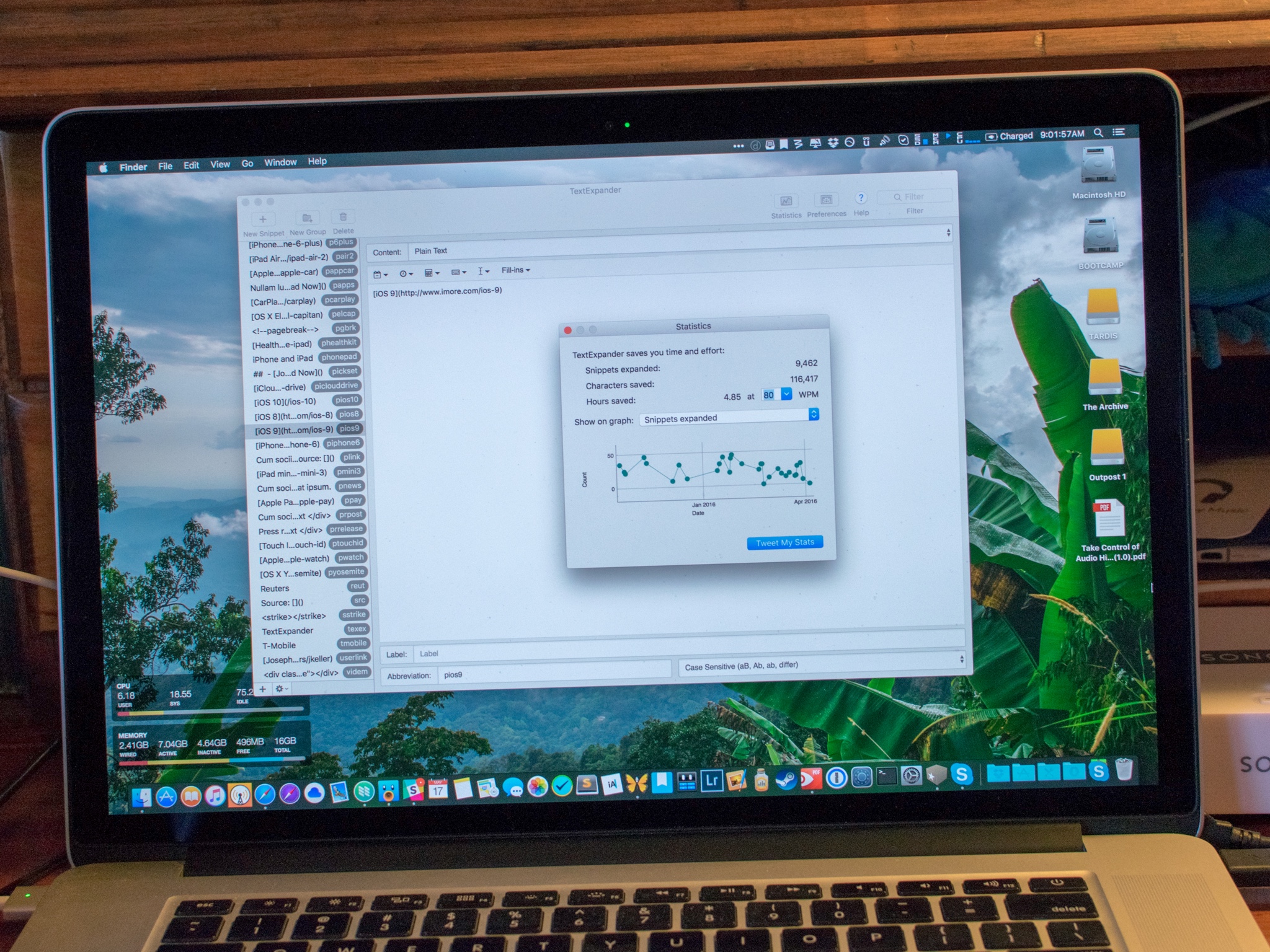Regarding TextExpander, subscription pricing, and internet outrage

TextExpander recently shocked customers by switching to a subscription model. It's an attempt by the developer, Smile, to create a sustainable business that'll let them continue working on the app for years to come. It's forced many people, however, to take a long, hard look at the value of not on Smile's software, but software in general.
Joe Cieplinski, writing on his blog:
As a developer, I completely understand and support Smile's decision. I'm sure there are a number of hard-core TextExpander junkies who use the software several times a day. For these folks, it should be a no-brainer to fork over $5 a month.As a customer, it gets harder for me personally. I've been using TextExpander for many, many years. I've upgraded to the latest version up until now. But I've never been what you'd call a "power" user. Basically, everything I do with it I could probably pull off with the built-in text shortcuts in iOS and OS X. TextExpander does way more than that, obviously, but I personally don't use those extra powerful abilities.
Joe is an app designer and part of the Release Notes podcast and conference. So, this is his business and his business, and his take is sharp. Read all of it.
I use TextExpander a lot. I type a few keys and most of an iMore show post magically appears in my editor. I'm pretty sure it'll be worth my money to get on the subscription train. But I had to think about it.
Others didn't. My Twitter feed is full of complaints. Nay, outrage. So are TextExpander's reviews. Part of that was Smile not doing enough to set expectations before the business model change. Part is casual customers feeling abandoned. Part is just the new normal.
Expensive software isn't a problem in a world where the average person wants or needs six apps a year. But when they want or need 60? 600? More?
Many continue to lament the loss of value in software. Yet, when developers resort to new apps or new business models, there's a backlash. That highlights the disconnect — how does traditional software thrive in the age of pop apps?
iMore offers spot-on advice and guidance from our team of experts, with decades of Apple device experience to lean on. Learn more with iMore!

Rene Ritchie is one of the most respected Apple analysts in the business, reaching a combined audience of over 40 million readers a month. His YouTube channel, Vector, has over 90 thousand subscribers and 14 million views and his podcasts, including Debug, have been downloaded over 20 million times. He also regularly co-hosts MacBreak Weekly for the TWiT network and co-hosted CES Live! and Talk Mobile. Based in Montreal, Rene is a former director of product marketing, web developer, and graphic designer. He's authored several books and appeared on numerous television and radio segments to discuss Apple and the technology industry. When not working, he likes to cook, grapple, and spend time with his friends and family.
